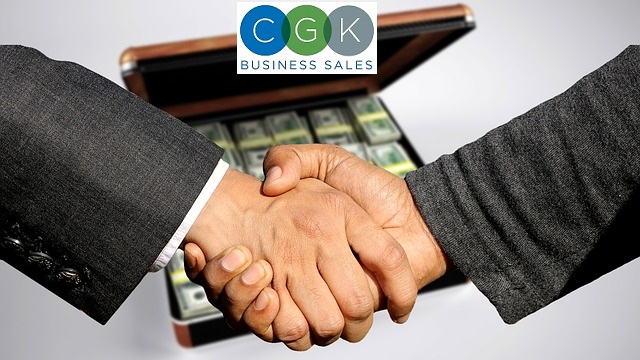Guide to Selling a Small Business

Guide to Selling a Small Business
Selling your small business does not have to be a difficult task. While it can be a complex venture that involves numerous considerations, it doesn’t have to be stressful. The profit you gain from this venture will solely depend on your reason for sale, the timing of your sale, the structure of your business, and its strength of operations. Enlisting the help of a business broker, accountant, and attorney may help the process. We will discuss all of these topics in this guide to selling a small business.
Your business sale will take up a lot of your time, so be prepared. Once your business is sold, however, you’ll need to have a plan for handling your profit as well. This website has some further information on selling a business that may be helpful.
Selling Your Business Smartly
The following is a list of seven considerations you should have when selling a business. These will help build a solid selling plan and make your negotiations more successful. For some tips on deciding when to sell a business, visit this site.
1. Goals for Your Sale
It’s important to know why you want to sell the business, before getting into any of the real work involved. There are a variety of reasons why an owner would want to retire and sell a business.
Some common reasons include:
- Disputes with partners
- Death or Illness
- Boredom with the profession
- Retirement
- Being overworked
In some instances, owners may sell their business due to falling profits. When a business is no longer profitable, it can become stressful just running it. If this is the case, it’s important to look at a few attributes of your business that will increase its attractiveness to buyers.
These can include:
- Consistency in income figures
- Strengthening the customer base
- Signing long-term contracts with clients
- Increasing overall profits
2. Your Sale’s Timing
One key tip to making your sale easier is to prepare for your sale ahead of time. Preparing a year or two ahead of the intended sale can help improve finances and company standing with customers. Improving your financial records, the structure of your business, and your customer base will make your business more appealing. These steps can also make the transition for your buyer easier.
3. Value of the Business
Determining the value of your business is also important. Business valuations help ensure you don’t price your business sale too high or too low. Business valuation experts will give you a detailed explanation of your business’s worth. This valuation will also lend credibility to your asking price and serve as its listing price gauge.
4. Is a Business Broker Necessary?
While selling a business yourself can help save money and avoid a broker’s commission, having a business broker can help make the process smoother. Plus, since there are always complications when selling a business, a business broker can be the difference between the business selling, or not selling, at all. If the sale is to a trusted family member or current employee, you might save money by avoiding a broker altogether. However, under other circumstances, a business broker can maximize the price, get you the best terms, or help speed the process up significantly by providing you with more free time to run the business until the deal closes. Brokers will want to maximize their commissions, which means they will look for the highest sale price possible, aligning them with the Seller. Keeping constant communication with your business broker is also important.
5. Financial Documentation
One of the most important pieces of documentation for your business will be its tax returns and financial statements. These will help determine the value of your business the most. Sellers should also provide a list of equipment being sold, a list of inventory, and prepare to prove certain elements of your business during due diligence to help make the transition smoother for your buyer.
Your information memorandum can also include a business summary describing daily operations and business conduct. An up-to-date operations manual wouldn’t hurt, either. Your business’s presentation is important for your sale. Fixing any areas of weakness in the business or equipment that’s broken should be a priority before you intend to sell the business.
6. Finding Your Buyer
Some business sales can take a while. While some transactions can last between three months and two years, others can be longer depending on the business. Avoid limiting your advertising to attract more potential buyers.
Once potential buyers are in hand, use these tips to keep your process moving:
- Have more than two potential buyers for multiple offers.
- Keep in communication with your buyers.
- Determine your buyer’s financing options beforehand.
- Work with an accountant and M&A attorney.
- Keep a firm stance on a reasonable price, but be flexible with negotiations.
- Keep ALL agreements in writing. Using a Non-disclosure agreement will help protect your business information.
- If possible, try to get your signed purchase agreement completed as soon as possible.
After selling your business, you may encounter several types of documents. The main one is your bill of sale. This document transfers the business assets from you to the buyer. An assignment of lease may also be present. You should approach your landlord early in the process. If you have a lien on the business, you may want to ask the lienholder about the payoff quote and procedure.
Buyers will ask for a non-compete agreement to be signed. This is an agreement stating you will not start a competing business to attract customers away from the one being sold.
7. Managing Your Profits
Once your business is sold, you should take a few months before investing or spending your profits. Creating a plan to outline financial goals can be helpful. Speaking with a financial professional can help you determine the smartest way to invest your money. This can help you focus on long-term benefits like getting out of any debts you have or saving for your retirement. Many owners use their profits to purchase a new home. Depending on your long-term goals, it would be wise to take your time in determining the best way to invest.
Bottom Line Stuff
In many ways, selling a business can be as stressful as purchasing or starting one. While the process can be time-consuming, it can also be an emotional venture. With the right help, however, the process of selling a business can be a breeze. Always make sure the reason behind your sale is a solid one. Once your business sells, your next worry will be just how to invest your profits smartly. Hopefully, this guide to selling a small business helps you prepare well for when the day to sell your small business comes.

